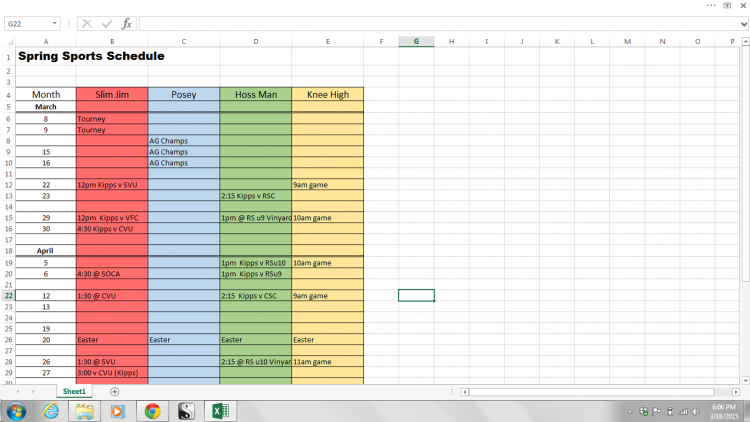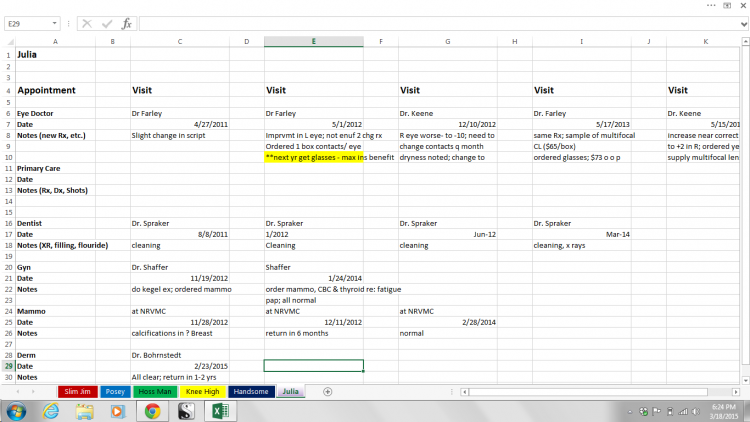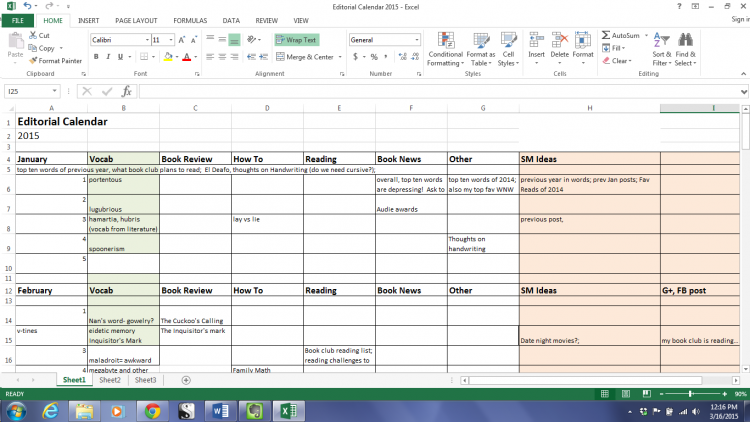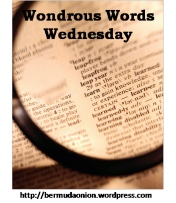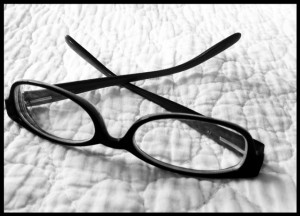 Today’s post is going to focus more on nerdy, less on wordy.
Today’s post is going to focus more on nerdy, less on wordy.
I’m gonna admit my love for spreadsheets.
I know, spreadsheets are more of an accountant’s obsession. But Excel can do way more than calculations. It can keep a busy life organized. And, you can color code! Next to my love of words comes my love of color. All my index cards in graduate school were color coded: pink and purple for neuroanatomy and pediatrics (my favorite subjects), black and red for wound care (the subject I dreaded.)
The Beauty of Spread Sheets
I have four children. Have I mentioned that before? My daughter keeps telling me I have short term memory loss. I’m positive that, if I have memory loss, motherhood has caused it. All the more reason why I need my spreadsheets! The sports schedules alone keep me hopping, and I need a way to see soccer games and swim meets all at once, so that when someone asks, “What weekends in April are you free?”, I can answer coherently.
Here’s where the Spring Sports Schedule spread sheet comes in handy.
Every child has a color – and that’s not just for spread sheets. The family color code works across calendars, chore charts, and folders I use to keep track of paperwork.
With the spreadsheet, I can pinpoint particularly tricky weekends, when every child has an entry across the row. I save the spreadsheet in Dropbox so that the hubby and I can access it from any device.
Another handy use for Excel: the Family Health Visit Record. Good grief, I don’t know how I would remember when everyone had their last eye exam or visit to the dentist without it.
See how every family member has a color coded tab? This workbook goes chronologically left to right – I just keep adding notes. Eventually, I guess I’ll delete old stuff. 2011 was a long time ago. Sigh.
See how often I’ve been to see a primary care physician? Whoops! Does it count if I’m married to one?
Finally, I use Excel to keep an Editorial Calendar for Diary of a Word Nerd. This is where I plan out posts and keep an eye on variety. Who wants to read (or write) book reviews week after week? With this spreadsheet, I keep notes for social media posts and set reminders for annual events, like National Poetry Month and Banned Books Week. When the new year rolls around, I “save as” for the new year.
I ♥ spreadsheets. Call me “Type A”. Say I’m a dork.
But I know when my child had his last fluoride treatment. Do you?
Michael Hyatt has a great idea for time management. Use his spreadsheet template to plan out your ideal week.
Your turn. What cool stuff do you do with spreadsheets? What’s your nerdy confession?
Please share; we’re all nerds here. 😉
Julia



